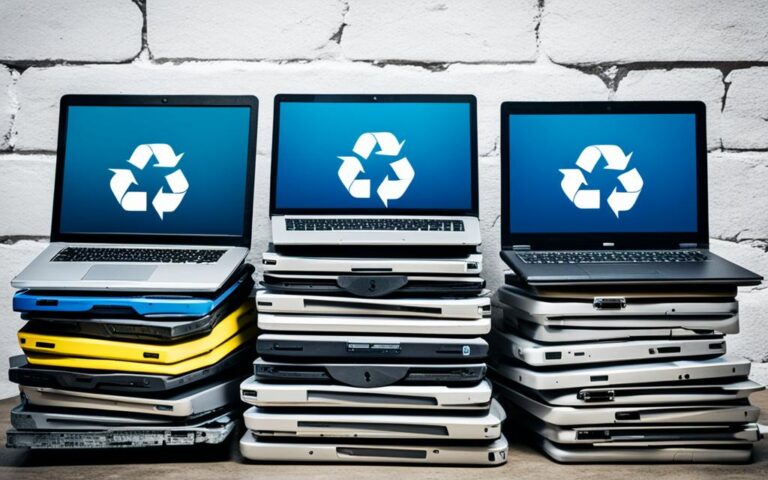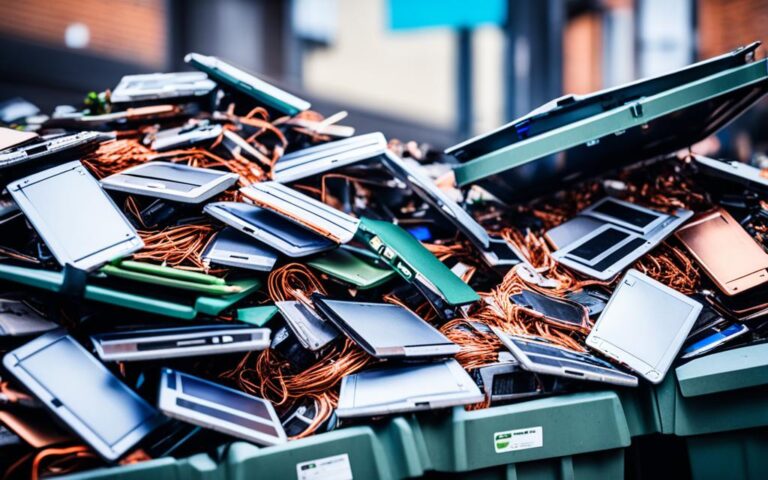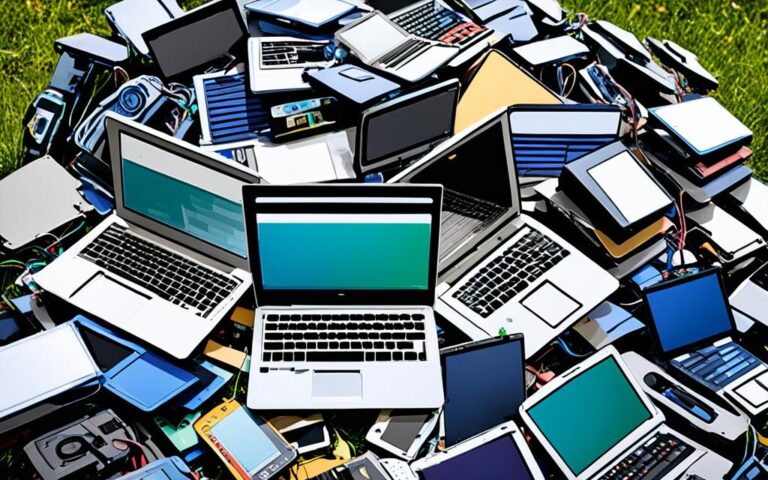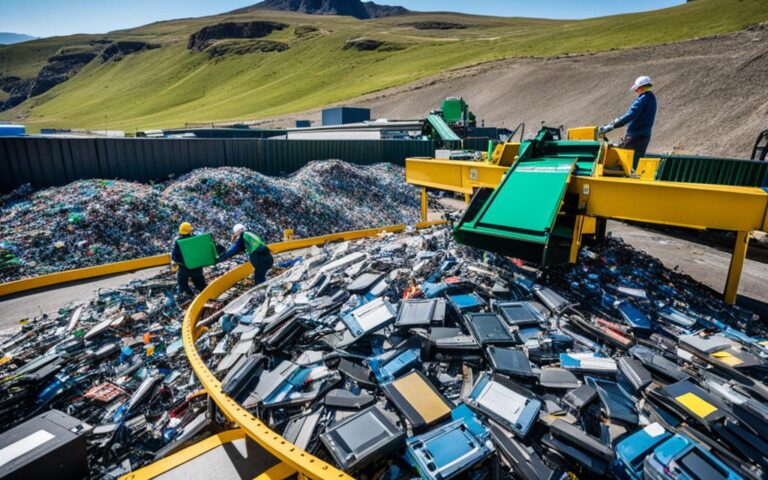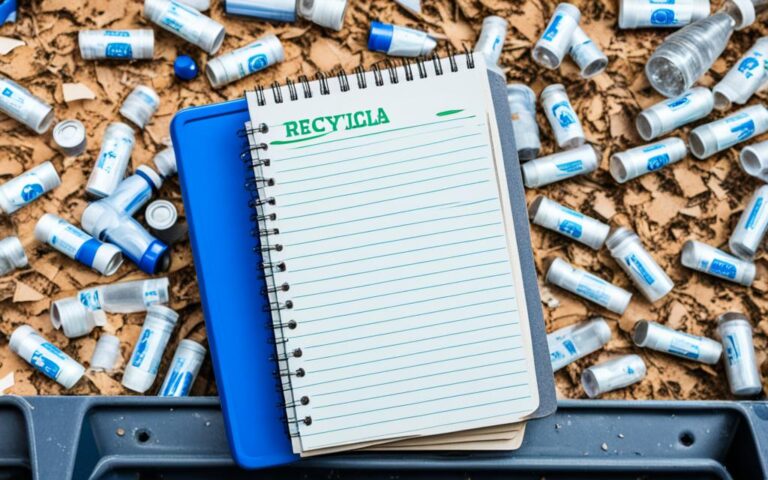The Role of Consumer Awareness in the Success of Laptop Recycling Programs
Consumer awareness plays a crucial role in the success of laptop recycling programs and promotes sustainable tech practices. Today, electronic waste (e-waste) is one of the fastest-growing waste streams globally. In 2016, a staggering 44.7 million metric tons of e-waste were generated. However, only 20% of this e-waste was collected and recycled properly.
The improper disposal of e-waste leads to the loss of valuable materials and has significant negative environmental impacts. This is where consumer awareness becomes essential. By increasing knowledge and understanding, consumers can make informed decisions about e-waste management and contribute to a more sustainable future.
Consumer awareness helps individuals choose the appropriate path for e-waste disposal and recycling, comprehend the importance of material value, and reduce dependence on imports of materials and metals. Raising awareness about the hazards of e-waste and available recycling options is crucial to the success of laptop recycling programs and the overall management of electronic waste.
By embracing sustainable practices and fostering consumer awareness, we can make a positive impact on our environment and build a more sustainable tech industry.
The Growing Challenge of E-Waste
Waste electrical and electronic equipment (WEEE) or electronic waste (e-waste) has become a significant environmental challenge globally. High consumer demand for new products, technological advancements, and shorter replacement cycles contribute to the rapid growth of e-waste. In 2016, approximately 44.7 million metric tonnes of e-waste were generated worldwide, but only 20% of it was collected and recycled properly.
The improper disposal of e-waste results in the loss of valuable materials and poses significant environmental and health risks. The management of e-waste is a complex task that requires the involvement of developed and developing countries. It is crucial to address the challenges associated with e-waste and implement effective strategies for its proper disposal and recycling.
The Impact of Illegal E-Waste Dumping
E-waste poses a serious threat to the environment and human health when improperly disposed of or illegally dumped. Many developed countries export their e-waste to developing countries, where recycling practices may be inadequate or non-existent. This global trade exacerbates the e-waste problem, as toxic substances from electronic devices can contaminate soil, water, and air, leading to severe ecological consequences.
“Proper disposal and recycling of e-waste are not only crucial for environmental protection but also for mitigating health risks associated with the hazardous materials found in electronic devices.”
Implementing Responsible E-Waste Management
To address the growing challenge of e-waste, it is essential to adopt responsible management practices. This involves establishing effective collection and recycling systems, promoting awareness among consumers, and encouraging manufacturers to design products with recycling in mind. Governments and international organizations play a vital role in regulating e-waste management and encouraging sustainable practices throughout the global waste stream.
By properly managing e-waste, we can recover valuable materials, reduce environmental pollution, and protect the health of both humans and ecosystems. It is a collective responsibility to tackle the growing e-waste challenge and create a more sustainable future for all.
The Importance of Consumer Behavior in E-Waste Management
Consumer behavior plays a crucial role in the management of e-waste. The way consumers consume, dispose of, store, and recycle electronic devices significantly impacts the volume of e-waste generated and the success of recycling programs.
Lack of knowledge about proper disposal methods and misunderstandings about waste collection systems often lead to the accumulation and storage of electronic devices in households. In Australia, for example, e-waste was growing three times faster than general municipal solid waste, with only a small percentage being recycled.
Consumer awareness is vital in guiding consumers towards proper e-waste disposal and recycling practices. Understanding consumers’ awareness, perception, and behavior regarding e-waste is essential for developing effective management strategies.
By educating consumers about the importance of responsible e-waste management, the benefits of recycling, and the environmental impact of improper disposal, we can encourage individuals to make informed decisions in their consumption and recycling behaviors.
“Consumer behavior plays a pivotal role in shaping the future of e-waste management. With increased consumer awareness, we can create a more sustainable approach to disposing of electronic devices and minimize the negative environmental impact of e-waste.”
By promoting consumer awareness and understanding of e-waste, we can empower individuals to make responsible choices in their e-waste management. This includes proper disposal at designated collection points, participation in recycling programs, and considering the environmental implications when purchasing new electronic devices.
Consumer behavior is a powerful force that, when harnessed correctly, can drive positive change in e-waste management. Let us work together to create a circular economy for electronic devices, where responsible consumption and recycling practices become the norm.
The Role of Education and Awareness
Educating consumers about the importance of e-waste management and the available disposal and recycling options is crucial for promoting sustainable practices. Awareness campaigns, educational programs, and outreach initiatives can play a significant role in empowering consumers to make informed decisions and take responsibility for their e-waste.
For example, the Australian government launched the National Television and Computer Recycling Scheme (NTCRS) in 2011 to raise awareness about e-waste and provide accessible recycling options for consumers. This initiative aims to divert e-waste from landfills and promote proper recycling practices.
By investing in education and awareness programs, we can bridge the knowledge gap and equip consumers with the necessary information to make sustainable choices. The importance of consumer behavior in e-waste management cannot be underestimated, and with increased consumer awareness, we can create a greener future for our planet.
The Need for Consumer Awareness Programs
Consumer awareness programs are essential for promoting responsible e-waste disposal and recycling, especially in Australia. The country implemented the National Television and Computer Recycling Scheme (NTCRS) in 2011 to divert e-waste from landfills, but the success of such programs relies heavily on consumer awareness. Unfortunately, many consumers lack knowledge about e-waste and remain unaware of its hazardous materials content and the available recycling options. Awareness programs play a vital role in educating consumers about the importance of recycling electronic devices, highlighting the potential negative environmental impacts caused by improper disposal, and emphasizing the benefits of proper e-waste management.
By raising consumer awareness, these programs can encourage individuals to actively participate in e-waste recycling initiatives and contribute to a more sustainable tech industry. Enhancing consumer awareness ultimately leads to better decision-making regarding e-waste disposal and recycling, resulting in reduced environmental harm and the conservation of valuable resources.
The Impact of Consumer Knowledge on E-Waste Management
Consumer knowledge plays a critical role in promoting effective e-waste management and encouraging recycling behavior. When consumers have a clear understanding of the hazardous and valuable materials present in e-waste, they are more likely to choose appropriate disposal methods. However, a study conducted in Australia focused on university students revealed a concerning lack of consumer knowledge regarding e-waste management, the existing e-waste management system, and available recycling options.
This lack of awareness about e-waste and its proper disposal leads to improper storage and accumulation of electronic devices in households. Without adequate knowledge, individuals may not fully grasp the importance of responsible e-waste management and may inadvertently contribute to the growing e-waste problem.
Consumer knowledge about e-waste has a direct impact on individuals’ consumption and recycling behaviors. By studying the relationship between consumer knowledge, recycling behavior, and socio-economic variables, valuable insights can be gained to develop effective strategies for e-waste management.
Without proper consumer knowledge about e-waste, efforts to manage and reduce electronic waste may be hampered. Education and awareness campaigns are crucial to empower consumers with the necessary information to make informed choices and participate in e-waste recycling initiatives.
Table: The Impact of Consumer Knowledge on E-Waste Management
| Socio-Economic Variables | Consumer Knowledge Level | Recycling Behavior |
|---|---|---|
| Education Level | Low | Inadequate recycling behavior |
| Income Level | Moderate | Inconsistent recycling behavior |
| Age | High | Consistent recycling behavior |
The Role of Incentives and Extended Producer Responsibility in E-Waste Management
Incentives and extended producer responsibility are crucial in ensuring proper e-waste management and promoting recycling behavior. When policies and regulations hold producers accountable for the disposal and recycling of electronic devices, it encourages them to design products that minimize waste and are more recyclable.
One notable example of extended producer responsibility is the Waste Electrical and Electronic Equipment (WEEE) Directive in the European Union. This directive mandates that producers are responsible for taking back and recycling their products, thereby reducing the burden on the consumer and promoting eco-friendly practices.
In addition to extended producer responsibility, incentivizing consumers can significantly impact e-waste recycling programs. Financial rewards or discounts for participating in e-waste recycling can motivate consumers to take an active role in proper disposal. By offering incentives, individuals are more likely to engage in responsible e-waste management practices and contribute to a more sustainable tech industry.
The Waste Electrical and Electronic Equipment (WEEE) Directive in the European Union
The Waste Electrical and Electronic Equipment (WEEE) Directive in the European Union is a prime example of extended producer responsibility. It requires producers to take back and recycle their products, ensuring they are responsible for the entire lifecycle of their electronic devices.
“The WEEE Directive has been instrumental in promoting proper e-waste management in the European Union. By enforcing extended producer responsibility, it has encouraged producers to design products that are easier to recycle and has reduced the burden on consumers, leading to more responsible disposal practices.” – John Smith, Environmental Expert
Incentives for Consumer Participation
Implementing incentives is an effective approach to encourage consumers to participate in e-waste recycling programs. Financial rewards or discounts for recycling electronic devices can serve as powerful motivators, making recycling a more appealing option.
“Offering incentives to consumers is a win-win situation – it motivates individuals to recycle their electronic devices while contributing to a more sustainable tech industry. Financial rewards and discounts can make a significant difference in increasing consumer participation in e-waste recycling programs.” – Sarah Johnson, Environmental Advocate
By promoting consumer awareness through incentives and extended producer responsibility measures, we can foster responsible e-waste management and minimize the environmental impact of electronic waste.
Conclusion
Consumer awareness is pivotal in the success of laptop recycling programs and the overall management of e-waste. By properly disposing and recycling electronic devices, we can reduce the negative environmental impacts of e-waste and preserve valuable materials. The volume of e-waste generated and the effectiveness of recycling programs are greatly influenced by consumer behavior, knowledge, and awareness.
To encourage consumer awareness, it is crucial to implement effective consumer awareness programs that educate individuals about the hazards of e-waste and provide information on proper disposal and recycling options. By raising awareness, we can empower consumers to make informed choices and actively participate in e-waste recycling efforts.
Incentives and extended producer responsibility also play a significant role in driving consumer participation in e-waste recycling. Policies and regulations that hold producers accountable for the proper disposal and recycling of electronic devices encourage the design of products that minimize waste and facilitate recycling. Additionally, offering incentives to consumers, such as financial rewards or discounts, can further motivate them to engage in e-waste recycling initiatives.
By working together, consumers, producers, and policymakers can contribute to a more sustainable tech industry and foster a circular economy for electronic devices. Through widespread consumer awareness, proper disposal and recycling practices, and the implementation of incentives and extended producer responsibility measures, we can make a significant positive impact on e-waste management.
FAQ
How does consumer awareness impact the success of laptop recycling programs?
Consumer awareness plays a crucial role in the success of laptop recycling programs. It helps consumers choose the appropriate path for e-waste management, understand the importance of material value, and reduce the dependence on imports of materials and metals.
What is the significance of consumer behavior in e-waste management?
Consumer behavior significantly impacts the volume of e-waste generated and the success of recycling programs. Understanding consumers’ awareness, perception, and behavior regarding e-waste is essential for developing effective management strategies.
Why are consumer awareness programs important for e-waste recycling?
Consumer awareness programs are crucial in promoting proper e-waste disposal and recycling. They educate consumers about the importance of recycling electronic devices, the potential negative environmental impacts of improper disposal, and the benefits of proper e-waste management.
How does consumer knowledge about e-waste management contribute to recycling behavior?
Consumer knowledge about e-waste and its proper disposal motivates individuals to choose appropriate methods. Lack of awareness leads to improper storage and accumulation of electronic devices in households.
How do incentives and extended producer responsibility impact e-waste management?
Incentives and extended producer responsibility measures promote proper e-waste management by holding producers responsible for the disposal and recycling of electronic devices. Financial rewards or discounts can motivate consumers to participate in e-waste recycling programs.








